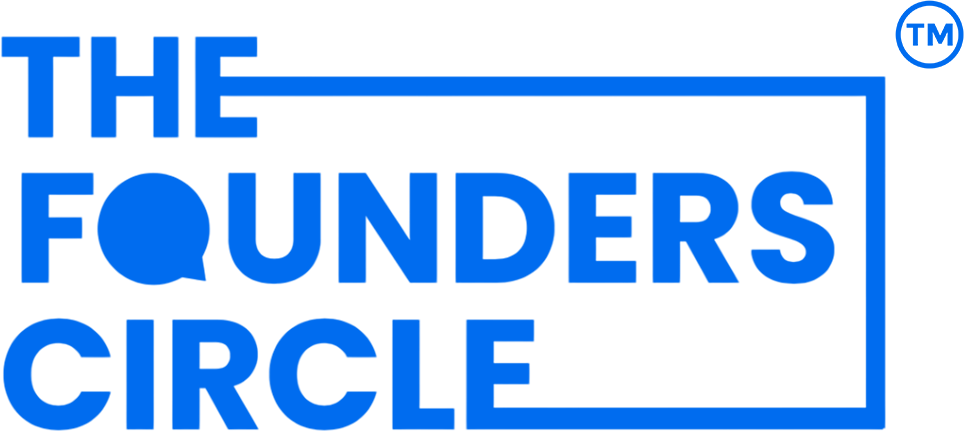The Future of Work for Startup Founders

The workplace is changing at an unprecedented pace, and startup founders are feeling the impact more than most. For entrepreneurs building the companies of tomorrow, understanding the Future of Work for Founders isn’t just a competitive advantage—it’s a necessity.
Today’s most successful startups are being shaped by trends like remote work, asynchronous communication, artificial intelligence, and the globalization of talent. At The Founders Circle, we believe founders must lean into these trends—not resist them—to create thriving, future-proof businesses.
Remote Work Is the Default
The Future of Work for Founders starts with remote work. What began as a temporary solution during the COVID-19 crisis has now become the standard operating model for many startups. Embracing the remote-first startup approach allows founders to reduce overhead costs, tap into global talent, and boost employee satisfaction.
Distributed teams also require new leadership skills. Startup founders must become proficient in digital collaboration tools, prioritize communication, and establish clear goals to maintain alignment across geographies. In the future of work for founders, leadership is digital-first.
Asynchronous Communication Is a Superpower
As teams span continents and time zones, synchronous communication becomes a bottleneck. The Future of Work for Founders includes mastering asynchronous workflows—using tools like Loom, Notion, Slack, and even WhatsApp for startup marketing to communicate without needing everyone online at the same time.
This shift not only improves productivity but also promotes thoughtful decision-making. Founders who lead with written clarity and document key decisions build companies that are scalable and resilient. The Future of Work for Founders is written, not spoken.
AI Becomes a Strategic Partner
Artificial Intelligence is no longer just a backend utility. In the Future of Work for Founders, AI is a central force in decision-making, customer support, marketing, and product development. Startups now use AI tools to write code, analyze user behavior, automate repetitive tasks, and even generate creative content—making AI in Founder Journey a defining element of modern entrepreneurship.
The advantage goes to those who experiment early and integrate AI deeply. Founders who treat AI as a co-founder—rather than just a tool—are building faster, smarter, and leaner businesses. The Future of Work for Founders rewards those who innovate with intelligence.
Talent Is Truly Global
In this new era, the hiring pool is no longer restricted by geography. The Future of Work for Founders involves tapping into a global talent marketplace. Platforms like Deel, Remote.com, and Upwork allow startups to hire the best people, regardless of location.
This global reach creates more diverse and dynamic teams, but it also brings new challenges in onboarding, compliance, and culture. Founders must become adept at managing across borders. The Future of Work for Founders is borderless and inclusive.
Flexibility Drives Retention
Today’s employees want more than a paycheck—they want autonomy, purpose, and flexibility. In the Future of Work for Founders, offering flexible work schedules and “work-from-anywhere” options isn’t a luxury—it’s expected.
This shift requires a new approach to management. Founders must move from tracking hours to measuring outcomes. Empowerment, not oversight, is the new leadership currency. The Future of Work for Founders is built on trust and accountability.
Mental Health Is a Leadership Priority
Burnout is a real threat in the high-pressure world of startups. The Future of Work for Founders includes prioritizing mental health and wellbeing—for both teams and founders themselves.
This means more than offering days off. It involves modeling healthy boundaries, encouraging open conversations, and designing workloads that are sustainable. Emotionally healthy teams perform better, stay longer, and innovate more. The Future of Work for Founders puts people first.
Founders as Culture Builders
As work becomes more decentralized, maintaining a strong company culture becomes both more difficult and more essential. The Future of Work for Founders includes building intentional culture through digital tools and in-person experiences.
Regular team retreats, virtual watercoolers, and structured onboarding processes help create a sense of belonging. A strong culture fosters collaboration, resilience, and loyalty. In the Future of Work for Founders, culture is not an afterthought—it’s a strategy.
Lifelong Learning Becomes a Necessity
The startup ecosystem evolves constantly, and so must its leaders. In the Future of Work for Founders, continuous learning is non-negotiable. The most successful founders consume podcasts, read newsletters, join mastermind groups, and seek mentorship.
At The Founders Circle, we see learning not as an event but as a habit. Founders who stay curious and connected adapt faster and make better decisions. The Future of Work for Founders is a lifelong education.
Redefining What Success Looks Like
In the past, startup success was often measured by fundraising rounds and flashy exits. But the Future of Work for Founders takes a broader view. Impact, sustainability, diversity, and well-being are now core metrics.
Founders are rewriting the rules to align their companies with personal values and societal needs. This attracts like-minded employees, partners, and investors. The Future of Work for Founders is about building meaningful businesses—not just big ones.
Final Thoughts
The Future of Work for Founders is here—and it’s redefining how companies are started, scaled, and sustained. Remote work, AI, global hiring, flexibility, and mental health aren’t trends. They’re foundational shifts that every startup leader must understand and embrace.
At The Founders Circle, we believe that founders who stay agile, human-centric, and forward-thinking will lead the next wave of impactful startups. Whether you’re just getting started or scaling rapidly, now is the time to rethink how you work, lead, and grow.
By leaning into the Future of Work for Founders, you’re not just preparing for what’s next—you’re helping shape it.


